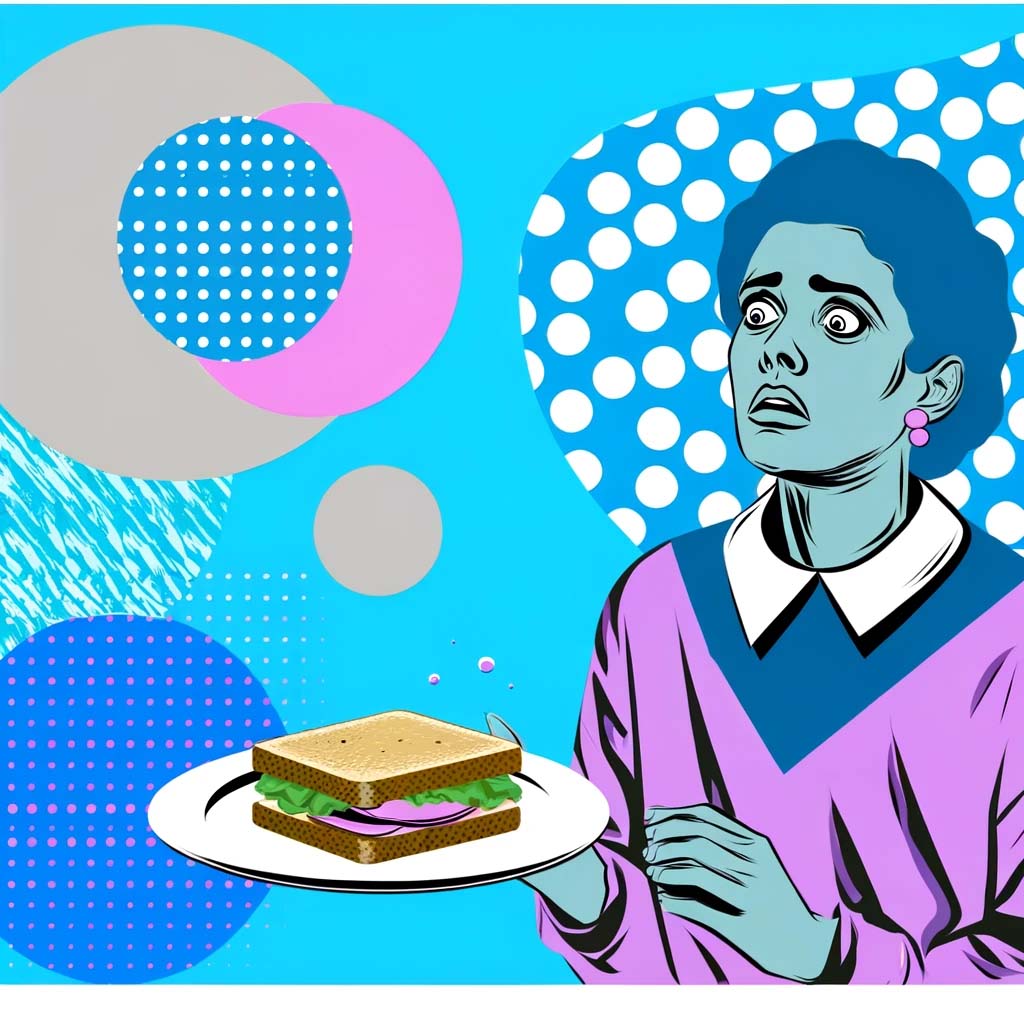Have you ever felt so scared of something that just thinking about it makes you anxious? Maybe you have a fear of heights, spiders, or even public speaking. Or maybe you are like me and suffer from emetophobia. Which is simply put, the intense fear of vomiting. It’s not just about disliking throwing up; it’s a deep-seated anxiety that can cause a lot of stress and limitations in daily life. So, let’s see in detail what is emetophobia?
What is Emetophobia?
Imagine being so scared of throwing up that:
- Eating becomes a chore: You might avoid certain foods, skip meals entirely, or constantly worry about getting sick.
- Going out is stressful: Restaurants can seem like minefields, travel plans become anxiety-ridden, and social gatherings might be avoided altogether.
- Simple thoughts trigger panic: Even just hearing someone talk about throwing up or seeing someone else feel unwell can send your anxiety spiraling.
It’s important to understand that emetophobia isn’t just a dislike or a phobia of the physical act of vomiting itself. It’s a complex fear with many layers. Some people might fear the discomfort and pain, while others might be worried about the social aspects or losing control.
Prevalence of Emetophobia
- General Population: Studies suggest varying levels of symptoms:
- Mild to Moderate: Potentially affecting up to 12 – 15% of the population at some point in their lives.
- Severe, Debilitating: Estimated to impact a smaller, but still significant percentage, around 2-3%.
- Gender Disparity: Disproportionately affects women (up to a 4:1 ratio compared to men).
- Age of Onset: Often begins in childhood or adolescence but can develop at any age.
How does emetophobia manifest?
While there aren’t two officially classified types of emetophobia, there are two main ways in which it manifests:
1. Emetophobia focused on the act of vomiting: This type of emetophobia is characterized by a fear of the physical act of vomiting itself, including the associated physical sensations and potential loss of control. Individuals with this type of emetophobia might experience anxiety about the sight, smell, or sounds associated with vomiting.
2. Emetophobia focused on the consequences of vomiting: This type of emetophobia focuses on the potential negative consequences of vomiting, such as embarrassment, social rejection, or medical complications. Individuals with this type of emetophobia might be more concerned with the social implications of vomiting or the fear of becoming sick and needing medical attention.
It’s important to note that these are not mutually exclusive categories. Many individuals with emetophobia experience a combination of both types of fear, with varying degrees of emphasis on each aspect. This can also vary depending on the situation and individual triggers.
Emetophobia can feel isolating and embarrassing. Many people don’t talk about it because they fear being judged or misunderstood. But it’s crucial to remember you’re not alone. Millions of people around the world struggle with emetophobia, and there’s help available.
Here’s the good news:
- There’s nothing wrong with you: Emetophobia is a real and recognized anxiety disorder, and it’s not your fault.
- You can get help: Therapists specialize in treating phobias, and they can equip you with tools to manage your anxiety and overcome your fear.
- There are resources available: There are online communities, support groups and dedicated websites providing information, and connecting you with others who understand your struggle.
Barriers to Understanding Emetophobia
- Underreporting: Many people with emetophobia never seek professional help due to embarrassment or not realizing it’s a treatable condition. (Riddle-Walker et al., 2016)
- Lack of Standardized Measures: Variation in how emetophobia is assessed in studies makes comparing data a bit challenging.
- Funding Gaps: Compared to more widely known anxiety disorders, emetophobia receives less research funding, potentially limiting larger-scale studies.
Here are some tips that can help you deal with emetophobia:
- Talk about it: Bottling up your fears can make them worse. Share your experiences with a trusted friend, family member, or therapist.
- Educate yourself: Learn about it, its triggers, and healthy ways to cope with anxiety. Knowledge is power!
- Practice relaxation techniques: Deep breathing exercises, meditation, and mindfulness can help calm your mind and manage anxiety in the moment.
- Challenge negative thoughts: Don’t let fear-driven assumptions control you. Cognitive Behavioral Therapy (CBT) can be helpful in identifying and correcting negative thought patterns.
- Build a support system: Surround yourself with people who understand and support you.
Remember, recovering from emetophobia takes time and patience. There will be good days and bad days, but don’t give up. With the right support and treatment, you can manage your anxiety and live a fulfilling life.
Here are some additional things to keep in mind:
- Everyone experiences emetophobia differently. What works for one person might not work for another.
- There are different types of treatments available, so it’s important to find what works best for you.
- Be kind to yourself. Be patient and celebrate your progress, no matter how small it may seem.
If you’re struggling you don’t have to go through this alone. Reach out for help, share your story, and remember, there’s hope and support available.
Together, we can raise awareness about emetophobia and create a more understanding and supportive environment for everyone.
Disclaimer: This article is for informational purposes and should not replace professional guidance.





0 Comments